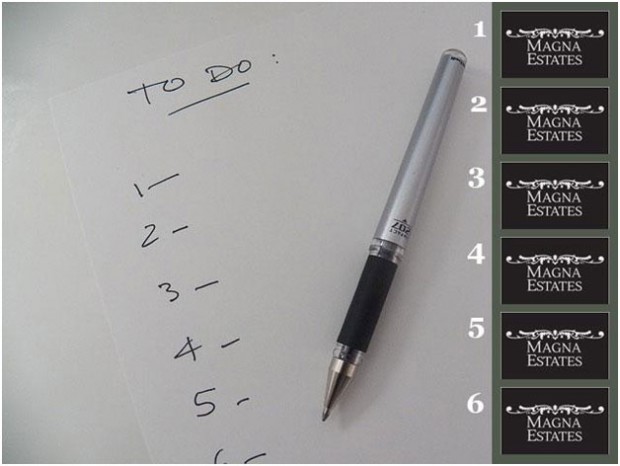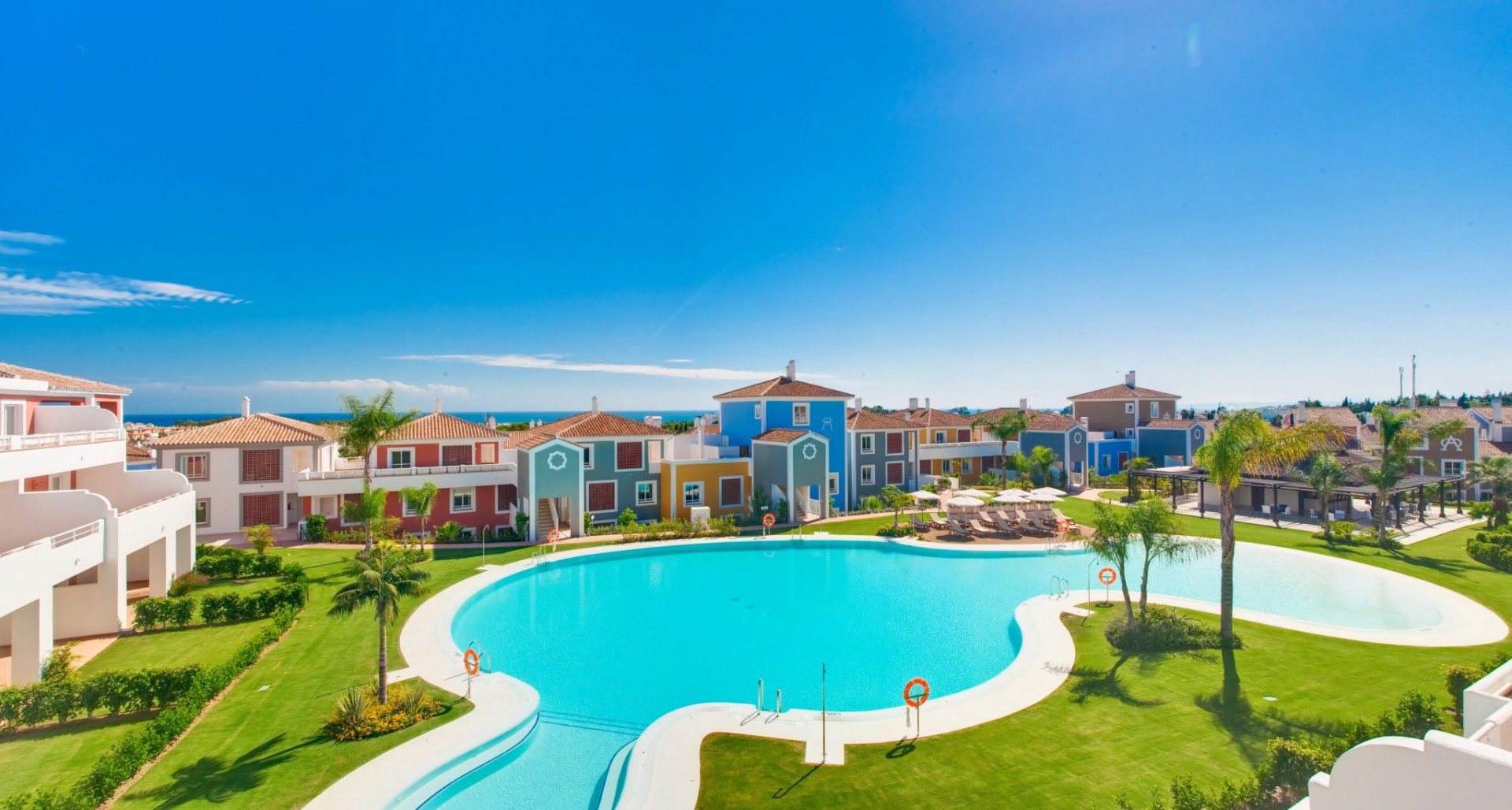
Making a ‘TO DO’ List When Buying a Spanish Property
It is known how strong the allure of buying a property in Spain can be and it is fully understood why so many people decide to do so. However there are many reasons to consider before you buy your property on the Costa del Sol and they are too important to overlook. This is why it is vital that you do your homework and get your affairs in order before signing on the dotted line. Here are a list of pointers that are a must when buying Spanish property…
Do Your Homework
It is of the utmost importance that you must find out as much as you can about your potential property. The way things are done in your country are probably not the same as in Spain and many different things will have to be considered before hand. Do not try to do these things alone.
You need to know of any potential work that has to be completed, does the property come with any extra fees, as some apartments on Urbanizations possibly would.
You must make sure that possible unforeseen legal factors regarding the house are not overlooked but checked again and again. For this it would be suggestable getting in the experts.
Find an Expert
Not only should you look for a tried and tested, well established professional estate agent to help you with your property search, one that has an actual office based in the area. Many real estates agents do business on their mobile phones or from home. This has been the very sad story of many a poor unfortunate, when trying to obtain any assistance from their real estate agent, who simply just couldn’t be found.
This type of professionalism should also extend to others whose help you will need, including a conveyancing lawyer and a building surveyor. A lawyer will make sure you do not miss anything that could trip you up in the future from a legal or lawful position and a building surveyor will help you with any potential structural problems that need may need to be fixed and how much it will cost.
Unbelievably these types of experts are not generally used in Spain but with dire consequences. Also make sure the people you work with understand your language and the language of the country thoroughly and make sure not to sign anything until it has been fully translated for you.
Make sure these experts are accredited and fully qualified before agreeing to anything that will cost you in the long run. Remember it is your decision and nobody should be trying to cajole you into anything, just to make a quick profit.
Obtaining an NIE Number
Your NIE or ‘Número de Identidad de Extranjero’ is an identification number for foreigners and is mandatory when purchasing property in Spain. This number is your own personal identification and tax ID and is needed for everything including getting connected to the utilities to buying a car.
To obtain an NIE can be a notoriously frustrating affair, so you must be prepared to wait a long time to get one and possibly in a long queue. Then again you may just be lucky and get it done within an hour, its hard to say. There are things to remember though for everyone purchasing property that getting an NIE beforehand is crucial. Therefore should be applied for at least one month in advance. They can be applied for in 3 ways, which are;
- In person in Spain
- Applying in person via a Spanish Consulate abroad
- Authorise a third party to obtain an NIE number on your behalf
In Person
This is a basically straightforward event and an application is made at your local police station. However be aware of what was stated earlier, that a long wait could proceed, depending on the station. Early arrival is also suggested. You must take with you all the necessary documentation:
- All applicants: Two copies of the Ex-14, NIE form is Solicitud de NIE.(Ex-14) application form filled out and signed.
- All applicants: An original document, plus photocopy giving reasons for your application for an NIE, such as a purchasing property, mortgage approval or working in the country.
- EU nationals: Your passport and a photocopy of the main page of your passport (the page that includes your photo, name, passport number, address, etc.).
- Non-EU nationals: Your passport and a photocopy of your entire passport (all pages), plus proof of your legal entry into Spain (for instance a landing card, known in Spanish as a declaración de entrada or a título de viaje or cédula de inscripción). Some Oficinas de Extranjeros might accept a valid entry stamp in your passport as proof of legal entry. Also take with you two recent passport size colour photographs with a plain coloured background.
Take your appropriate documentation to the Oficinas de Extranjeros (immigration office), situated in the police station and preferably in the area where you are purchasing the property. You will have to pay around €10.00 tax at the nearest bank branch after making your application. Take proof of this payment (the stamped receipt from the bank) back to the Oficina de Extranjeros, which completes the process.
Collect your NIE number after a few days. When you submit your application you will receive a receipt which will explain when you are to return to collect your NIE document. This may range from a few days to a few weeks. However you do not have to collect it in person but can arrange to have it collected by someone else as long as they have the official receipt.
With this said it is probably a little quicker to obtain your NIE number through your local tax office as they usually take days and not weeks to go through the application process. Please not that when doing it this way the tax office will then have all your details automatically when it comes to pursuing you for taxes relating to your property.
In person via a Spanish Consulate abroad
You can also get your NIE number via a Spanish Consulate in your country if you cannot get one personally in Spain.
- For this you will need: EU nationals: Your passport and a photocopy of the main page of your passport (the page that includes your photo, name, passport number, address, etc.). Non-EU nationals: Your passport and a photocopy of your entire passport.
- 2 copies of the appropriate application form duly completed but NOT SIGNED as you will need to sign in the presence of a consular official. You must obtain Solicitud de NIE. para residentes en el extranjero (Ex-14bis) beforehand.
- A self-addressed envelope (no stamp)
- An envelope addressed to:
- Comisaría General de Extranjería y Documentación, Dirección General de Policía, C/ General Pardiñas, 90, 28006 Madrid
- In the UK it appears that there is no longer any fee to pay but it would be advisable to take your checkbook in case this has been changed since.
- You might also have to produce an original document (plus a photocopy) that gives reasons for applying for an NIE number.
Take all the necessary documents to the Spanish Consulate in person and then wait for them to get back in touch with you. You should get your NIE number from them in the post within 4 – 6 weeks.
Authorise a third party to obtain your NIE number on your behalf.
It is now permitted by the Spanish Government to allow third parties to obtain NIE numbers on behalf of foreigners. There are now a number of companies that are offering this service. You must grant them power of attorney which then enables the third party to proceed on your behalf. this is basically the procedure to follow.
- Grant them a ‘poder,’ or power of attorney signed before a notary, granting permission to request an NIE number on your behalf.
- Let them have your passport, or send them a notarised copy of your passport (copia legitimada). You can get a copy of your passport in Spain, easily and cheaply with a visit to a notary. If you can get your copy inside of Spain as some oficinas de extranjería do not accept passport copies that have been notarised outside of Spain – they only accept copies done by a Spanish notary.
Most Notary Publics can be found in a solicitors office.
Opening a Spanish Bank Account
When first looking to open a Spanish bank account, it good to consider that the main banks like BBVA and Banco Santander may charge higher commissions that local ones.
Non residents have to provide a passport or ID card as proof. After 15 days, you must prove your non-resident status by providing a ‘certificado de no residencia,’ (certificate of non residence) which you can apply for and collect at a local police station. The banks then usually makes the necessary checks on your non residency every two years. If your circumstances change in that time, then you have to notify the bank.
Requirements for opening an account:
- Applicants must be aged 18 or over
- Photographic proof of identity (passport or National Identity Card from the country of origin for each of the applicants)
- Proof of occupation or status (employment contract/payslip, letter from accountant/lawyer, pension or disability payment confirmation, student card).
- Residents also need to produce their Foreigner Identification Number and certificate (Número de Identificación de Extranjeros or NIE)
- Confirmation of address (utility bill, driving licence or council tax bill; proof of address must have been issued within the last 3 months.)
Fees & Services
Non-resident accounts are the same as resident ones when it comes to fees and services. The only differences are that maybe the bank will not be willing to issue you a credit card or provide you with an overdraft. If you think you are being charged overpriced fees, maybe it is a consideration to look elsewhere.
Important: If you make an initial deposit in a foreign currency, be sure to specifically ask that the currency be converted into euros immediately, thus avoiding any problems later. The bank should charge you no more than their typical foreign exchange commissions for this operation.
That is a lot to take in at first when first looking at purchasing property in Spain, however it is all very necessary to avoiding any pitfalls that may arise later on in the procedures or transaction stages. If you take all the necessary steps beforehand, then a lot of aggravation will be avoided and a lot of money saved.
Lets do it right, together.
